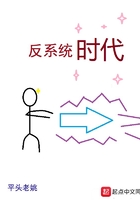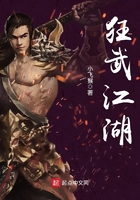1. The Mortality of the Gods.
MAN has created gods in his own likeness and being himself mortal he has naturally supposed his creatures to be in the same sad predicament. Thus the Greenlanders believed that a wind could kill their most powerful god, and that he would certainly die if he touched a dog. When they heard of the Christian God, they kept asking if he never died, and being informed that he did not, they were much surprised, and said that he must be a very great god indeed. In answer to the enquiries of Colonel Dodge, a North American Indian stated that the world was made by the Great Spirit. Being asked which Great Spirit he meant, the good one or the bad one, Oh, neither of them, replied he, the Great Spirit that made the world is dead long ago. He could not possibly have lived as long as this. A tribe in the Philippine Islands told the Spanish conquerors that the grave of the Creator was upon the top of Mount Cabunian.
Heitsi-eibib, a god or divine hero of the Hottentots, died several times and came to life again. His graves are generally to be met with in narrow defiles between mountains. When the Hottentots pass one of them, they throw a stone on it for good luck, sometimes muttering, Give us plenty of cattle. The grave of Zeus, the great god of Greece, was shown to visitors in Crete as late as about the beginning of our era. The body of Dionysus was buried at Delphi beside the golden statue of Apollo, and his tomb bore the inscription, Here lies Dionysus dead, the son of Semele. According to one account, Apollo himself was buried at Delphi; for Pythagoras is said to have carved an inscription on his tomb, setting forth how the god had been killed by the python and buried under the tripod.
The great gods of Egypt themselves were not exempt from the common lot.
They too grew old and died. But when at a later time the discovery of the art of embalming gave a new lease of life to the souls of the dead by preserving their bodies for an indefinite time from corruption, the deities were permitted to share the benefit of an invention which held out to gods as well as to men a reasonable hope of immortality. Every province then had the tomb and mummy of its dead god. The mummy of Osiris was to be seen at Mendes;
Thinis boasted of the mummy of Anhouri; and Heliopolis rejoiced in the possession of that of Toumou. The high gods of Babylon also, though they appeared to their worshippers only in dreams and visions, were conceived to be human in their bodily shape, human in their passions, and human in their fate; for like men they were born into the world, and like men they loved and fought and died.
2. Kings killed when their Strength fails.
IF THE HIGH gods, who dwell remote from the fret and fever of this earthly life, are yet believed to die at last, it is not to be expected that a god who lodges in a frail tabernacle of flesh should escape the same fate, though we hear of African kings who have imagined themselves immortal by virtue of their sorceries. Now primitive peoples, as we have seen, sometimes believe that their safety and even that of the world is bound up with the life of one of these god-men or human incarnations of the divinity. Naturally, therefore, they take the utmost care of his life, out of a regard for their own. But no amount of care and precaution will prevent the man-god from growing old and feeble and at last dying. His worshippers have to lay their account with this sad necessity and to meet it as best they can. The danger is a formidable one; for if the course of nature is dependent on the man-god's life, what catastrophes may not be expected from the gradual enfeeblement of his powers and their final extinction in death? There is only one way of averting these dangers. The man-god must be killed as soon as he shows symptoms that his powers are beginning to fail, and his soul must be transferred to a vigorous successor before it has been seriously impaired by the threatened decay. The advantages of thus putting the man-god to death instead of allowing him to die of old age and disease are, to the savage, obvious enough. For if the man-god dies what we call a natural death, it means, according to the savage, that his soul has either voluntarily departed from his body and refuses to return, or more commonly that it has been extracted, or at least detained in its wanderings, by a demon or sorcerer. In any of these cases the soul of the man-god is lost to his worshippers, and with it their prosperity is gone and their very existence endangered. Even if they could arrange to catch the soul of the dying god as it left his lips or his nostrils and so transfer it to a successor, this would not effect their purpose; for, dying of disease, his soul would necessarily leave his body in the last stage of weakness and exhaustion, and so enfeebled it would continue to drag out a languid, inert existence in any body to which it might be transferred. Whereas by slaying him his worshippers could, in the first place, make sure of catching his soul as it escaped and transferring it to a suitable successor; and, in the second place, by putting him to death before his natural force was abated, they would secure that the world should not fall into decay with the decay of the man-god. Every purpose, therefore, was answered, and all dangers averted by thus killing the man-god and transferring his soul, while yet at its prime, to a vigorous successor.















